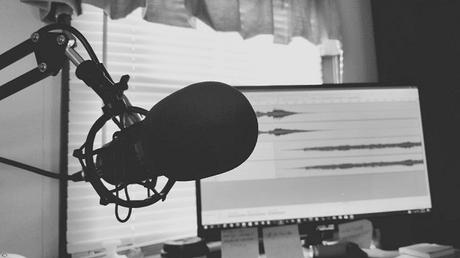Did you know that the first podcasts appeared in the early 2000s yet they still have a small listener base? But before we write off this technology as a niche medium, let's find out what the future holds.

Have you noted signs that suggest podcasts are getting to an inflection point? Podcasts have indeed reached mainstream status. Before you hit the Facebook logout button, consider checking out the latest podcast page. TV and radio networks perceive this type of distribution as the way to success. That is why renowned players such as NPR are fully embracing the technology to reach out to a greater audience that is tuning out the radio. What does this mean for the future of podcasts? Let's find out.
Media Coverage And Adaptations
Recently, some favorite podcasts have been popping up on the least expected platforms. They have even become a significant topic of discussion in essay writing on PapersOwl. In a real-life example, Up and Vanished (a true crime podcast) which was probing into the disappearance of a teacher that happened in 2005 made headlines when the police arrested two suspects. This arrest was attributable to the influence of Payne Lindsey, a podcast host whose inquest led to new information that encouraged witnesses to speak up.
Also, a recent article featured in Wired suggested that podcasts may turn into a low-cost experimental platform for movies and TV, piloting ideas to audiences to adapt successful content. This might change potential prospects to high-return formats. Reddit roast me has also agreed with this prediction as well.
We are not saying that all the new avenues will be successful. But the reality of the matter is some podcasts are breaking into the real world, promising the medium's success shortly. Like the way movie adaptations boost the sales of books, movies, and TV shows, podcasts have the potential to attract new audiences.
Smart Speaker
The popularity of intelligent speakers has allowed companies to create a technology that will enable formal integration of these speakers into podcast listening. In particular, podcast playlists known as stations are being built to serve curated set-ups for podcasts involving certain subject matters. The playlists are curated manually by a community of listeners or a company. As the technology advances, we expect automated playlists to hit the mainstreams.
Smart speakers help to solve the issues involved in transitioning to voice-activated listening such as the inability to see what a podcast is about before listening, e.g., how to pin a post on Facebook.
While mobile phones are the primary mode of podcast listening, smart speakers provide the flexibility of listening to podcasts wherever you are, and they sound better than standard headphones and smartphones. Also, they come with voice-activated controls for rewinding, stopping, and starting so you can listen to a podcast when you are busy with your hands. It is as comfortable as learning how to log out of messenger.
What Does This Mean For Sponsors?
It is due to that smart speakers will gain a considerable market share. As their popularity rises, they might become the primary means of podcast listening. Will intelligent speaker listening overtake the use of smartphones? Whichever the case, experts don't see podcast popularity slowing down.
Sponsors should understand that the creation of ads will change as well. There is power in the value of host-read ads and recommendation. The rules of coming up with killer podcast ads remain relevant even if audiences are not able to search for sponsors immediately without a handy smartphone.
Podcasts listening will become the secondary activities as the smart speakers enable users to consume information in various places while doing other tasks. The most significant benefit for sponsors is that they are likely to get a broader audience due to an increase in the listening options.
Over time, the amount of content consumed by podcast listeners keeps on rising. We see funny statuses related to this content. When a podcast listener posts a funny Facebook status, it tells you how addicted they are to the medium.
Podcasting as The Future of Storytelling
Since time immemorial, oral narration has been the sole means of passing on experiences and emotions from generation to generations. Ancient oral storytellers were proud in their communities as the keepers of history, traditions, and local knowledge. Many Facebook quotes highlight the roles of the storytellers. However, storytelling has changed a lot in the millennial age. Apart from YouTube videos, we now have podcasts.
To answer the big question, will podcasting growth be sustained? Our experts assert the investment in podcast networks is rising, content is improving, the talents are growing, Virtual Reality is on, and the distribution keeps on expanding. Therefore, the podcast is here to stay.
